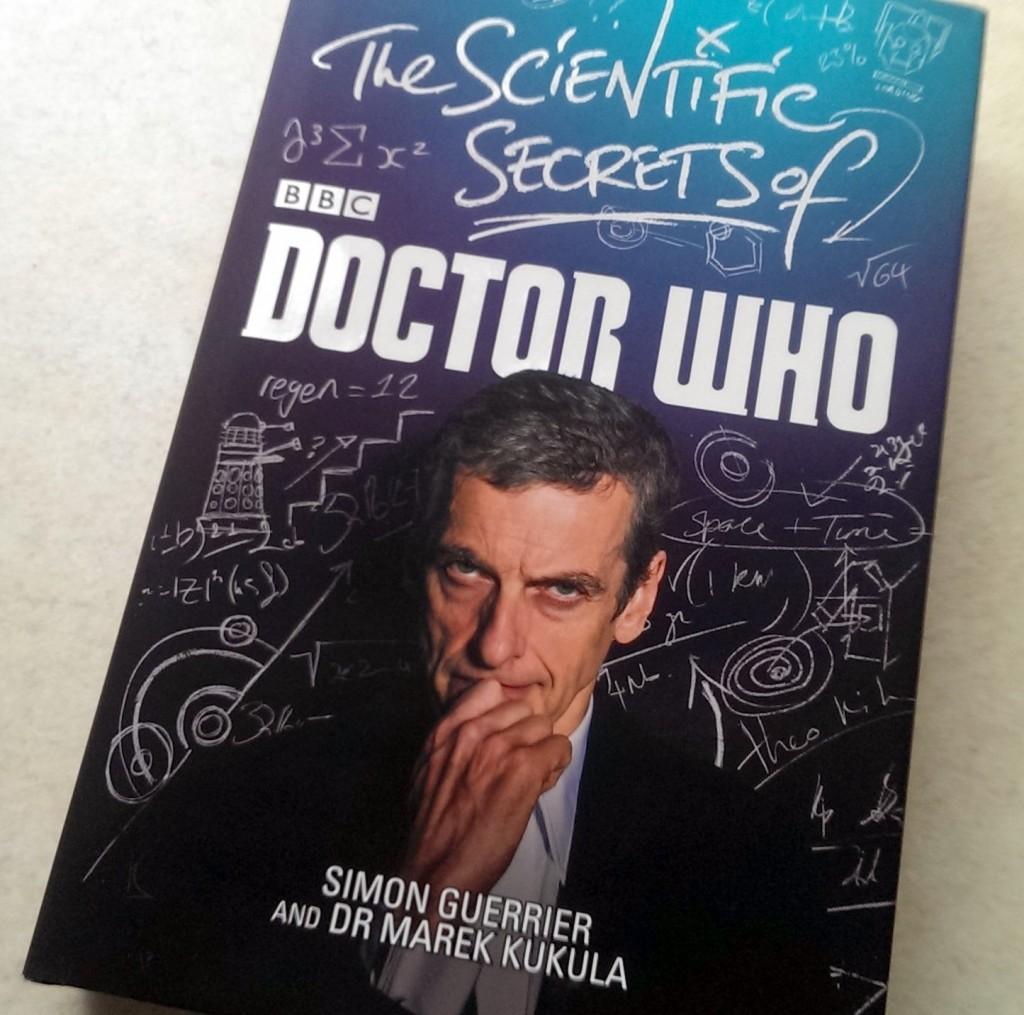01 Jun 2015
Simon Guerrier is an author who's been working with our Astronomer, Marek Kukula, on a book called The Scientific Secrets of Doctor Who. In today's guest blog he looks at the science of crashed spaceships.
Discover more when he joins Marek to talk at our Observatory on Friday.

The story featured the Third Doctor, working as scientific advisor to UNIT with his clever companion Liz Shaw – who had degrees in “medicine, physics and a dozen other subjects” according to Brigadier Lethbridge Stewart I asked Marek: “If a smallish, people-carrier-sized ship was to crash into the Pennines at about the time of [1970 Doctor Who story] The Ambassadors of Death, would UNIT have been able to spot it in advance, and how much warning would they have got?” And he said: “Hmm.. Interesting history of science/technology question... Ignoring the old UNIT dating controversy [where stories made in the 1970s were set in the near future], I think it's fair to say that in the 70s they could easily have detected something that size via standard military radar sweeps once it was in the atmosphere over the British Isles or nearby parts of Europe and the Atlantic – but at a typical re-entry speed that would probably give you a few minutes or tens of minutes warning at most.
Modern radar routinely allows us to track debris in Earth orbit down to sizes of a few centimetres across and if we know where to look we can track asteroids just a few meters across at distances of hundreds of thousands of km (which would give you days of lead-in time). So, given the British government's apparent ability to send astronauts to Mars and Jupiter in the 1970s (or 80s), I don't think it would be implausible to have UNIT doing this sort of thing even back then.”
I then asked: “What tests would Cambridge physicist Liz Shaw want to do on an alien spaceship? I'm thinking she wants to treat it as an artefact from space, and go slow. The Doctor, meanwhile, sees this stuff all the time and is more bothered about checking – quickly – for survivors.” To which Marek answered: “Well, I guess you can draw parallels with scientists studying meteorites, so if I was Liz Shaw (and thank heavens I'm not because I'd be laddering my stockings every 20 minutes) and I suspected an interesting extraterrestrial object the first thing I'd be worried about would be trying not to contaminate the specimen with Earth DNA – which means not crawling all over it and maybe wrapping it with protective material to prevent further contamination. Running a UV light source over the surface might show up interesting traces of organic compounds (but it might also kill interesting alien microbes). If you suspected it was artificial you might want to do a quick Geiger counter test for radioactive material – current spacecraft, especially ones going further from the sun than Mars, are reaching the limits of what you can power with solar panels so they're starting to be designed with radioactive heat sources to provide electricity, or even full blown nuclear reactors. Liz would presumably be aware of this so it would be natural to check whether radiation was present. She'd probably also want to find out what it was made of – putting a sample of the hull into a mass spectrometer to analyse its component molecules would be a good way to do this. And if you wanted to find out what was inside without opening it there are various things you could try - comparing its total mass with its exterior dimensions would give you some clues as to whether it was hollow (wouldn't necessarily work for a TARDIS I suppose...), and monitoring for radio or microwave noise might tell you about interior electronics and so on. Finally the size and shape of the impact crater can tell you a lot about the trajectory, speed and mass of the impacting object and possibly give clues as to where it came from (Earth orbit, the outer Solar System etc.).”
To which I said: “Ha ha! I think you've just done all my homework for me. How would you like to be my scientific advisor?” I basically copied and pasted Marek's answer into my script for Shadow of the Past.